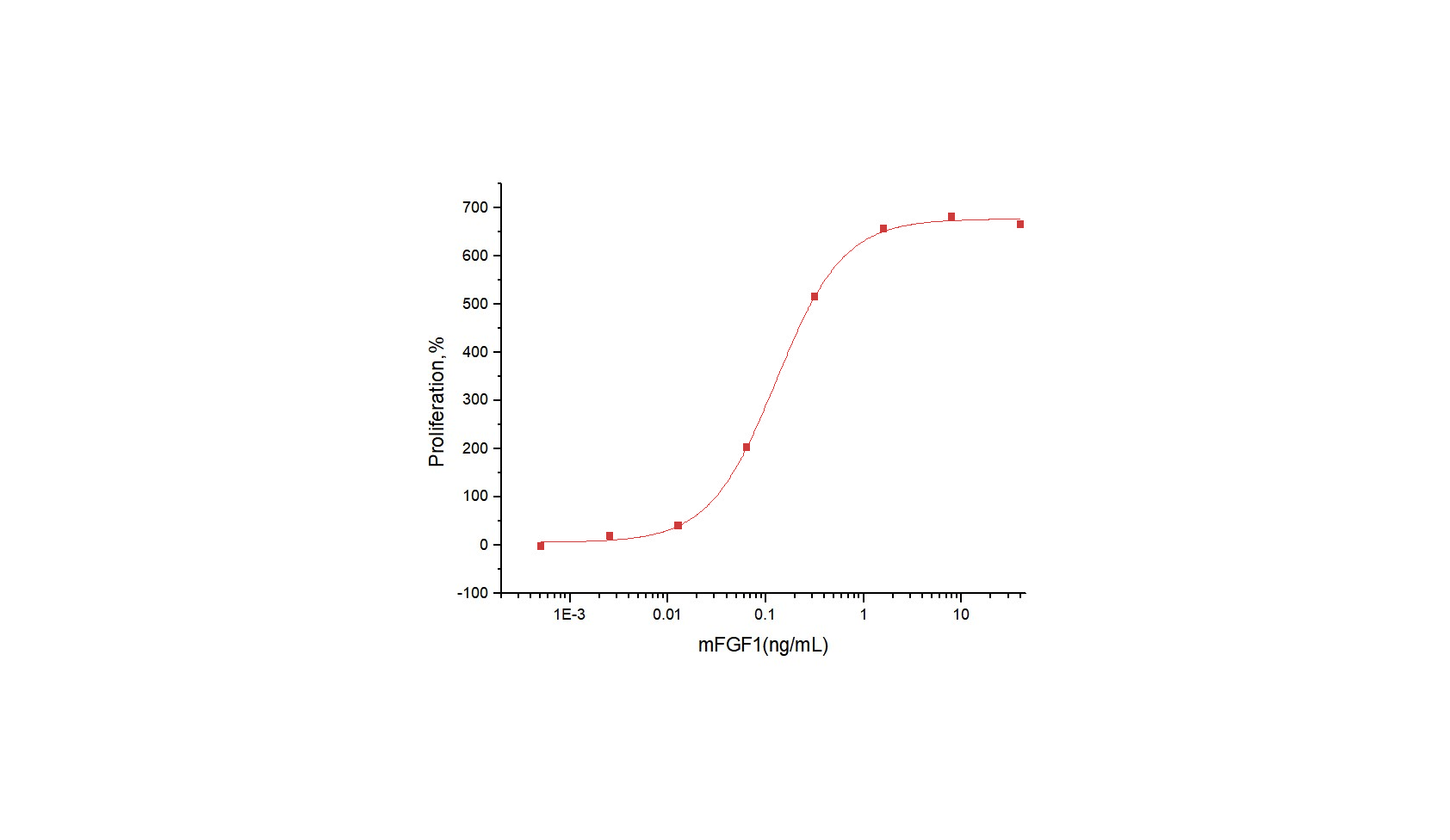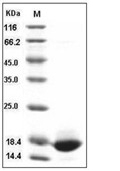购物车
全部删除  您的购物车当前为空
您的购物车当前为空
别名 fibroblast growth factor 1 (acidic)
FGF-1 Protein, Mouse, Rat, Recombinant is expressed in E. coli expression system. The predicted molecular weight is 16 kDa and the accession number is P61148.

FGF-1 Protein, Mouse, Rat, Recombinant is expressed in E. coli expression system. The predicted molecular weight is 16 kDa and the accession number is P61148.
| 规格 | 价格 | 库存 | 数量 |
|---|---|---|---|
| 5 μg | ¥ 348 | 3日内发货 | |
| 10 μg | ¥ 560 | 现货 | |
| 20 μg | ¥ 791 | 5日内发货 | |
| 50 μg | ¥ 1,320 | 5日内发货 | |
| 100 μg | ¥ 1,950 | 5日内发货 | |
| 200 μg | ¥ 3,390 | 5日内发货 | |
| 500 μg | ¥ 7,190 | 5日内发货 | |
| 1 mg | ¥ 12,700 | 5日内发货 |
| 产品描述 | FGF-1 Protein, Mouse, Rat, Recombinant is expressed in E. coli expression system. The predicted molecular weight is 16 kDa and the accession number is P61148. |
| 生物活性 | Measured in a cell proliferation assay using Balb/c 3T3 mouse embryonic fibroblast cells. The ED50 for this effect is 0.04-0.2 ng/mL.  |
| 研究背景 | aFGF, also known as FGF1 and HBGF-1, is a member of the fibroblast growth factor family. The biological activity of aFGF protein is exerted through binding to four high affinity cell surface receptors (FGFR1–4), which results in receptor dimerization and transphosphorylation in the tyrosine kinase domain. aFGF protein shows a wide range of endocrine-like activities. As a multiple function growth factor, this protein is involved in embryo development and tissue repair. Additionally, this protein is considered to function in several important physiological and pathological processes, such as embryonic development, morphogenesis, angiogenesis, wound healing and atheromatosis, carcinogenesis, development, and invasion of cancer.References |
| 种属 | Mouse,Rat |
| 表达系统 | E. coli |
| 标签 | Tag Free |
| 蛋白编号 | P61148 |
| 蛋白构建 | A DNA sequence encoding the mature form of mouse / rat FGF1 (NP_034327.1) (Phe16-Asp155) was expressed. Mouse and Rat FGF1 sequences are identical. Predicted N terminal: Met |
| 蛋白纯度 | > 90 % as determined by SDS-PAGE  |
| 蛋白性状 | Lyophilized powder |
| 缓冲液 | Lyophilized from a solution filtered through a 0.22 μm filter, containing 50 mM Na2SO4, 0.5 mM DTT, 1 mM EDTA, 20 mM Tris, pH 7.5. Typically, a mixture containing 5% to 8% trehalose, mannitol, and 0.01% Tween 80 is incorporated as a protective agent before lyophilization. |
| 复溶方法 | A Certificate of Analysis (CoA) containing reconstitution instructions is included with the products. Please refer to the CoA for detailed information. |
| 别名 | fibroblast growth factor 1 (acidic) |
| 内毒素 | Please contact us for more information. |
| 分子量 | 16 kDa (predicted); 16 kD (reducing conditions) |
| 运输方式 | In general, Lyophilized powders are shipping with blue ice. |
| 存储 | It is recommended to store recombinant proteins at -20°C to -80°C for future use. Lyophilized powders can be stably stored for over 12 months, while liquid products can be stored for 6-12 months at -80°C. For reconstituted protein solutions, the solution can be stored at -20°C to -80°C for at least 3 months. Please avoid multiple freeze-thaw cycles and store products in aliquots. |
对于不同动物的给药剂量换算,您也可以参考 更多